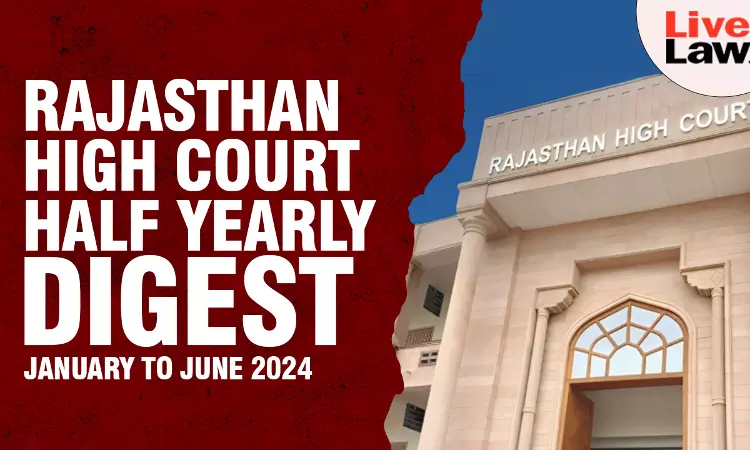Rajasthan High Court Half Yearly Digest: January To June, 2024
Nupur Agrawal
20 July 2024 3:00 PM IST

Next Story
20 July 2024 3:00 PM IST
Citations: 2024 LiveLaw (Raj) 1 To 2024 LiveLaw (Raj) 136Writ Petition Against Charge-Sheet Not Maintainable Unless Issued By Authority Not Competent To Initiate Disciplinary Action: Rajasthan HCCase Title: Laxman Singh Gurjar v. Rajasthan State Road Transport Corporation & 2 Ors.Case Citation: Citation: 2024 LiveLaw (Raj) 1The Rajasthan High Court dismissed a writ petition filed by a...
